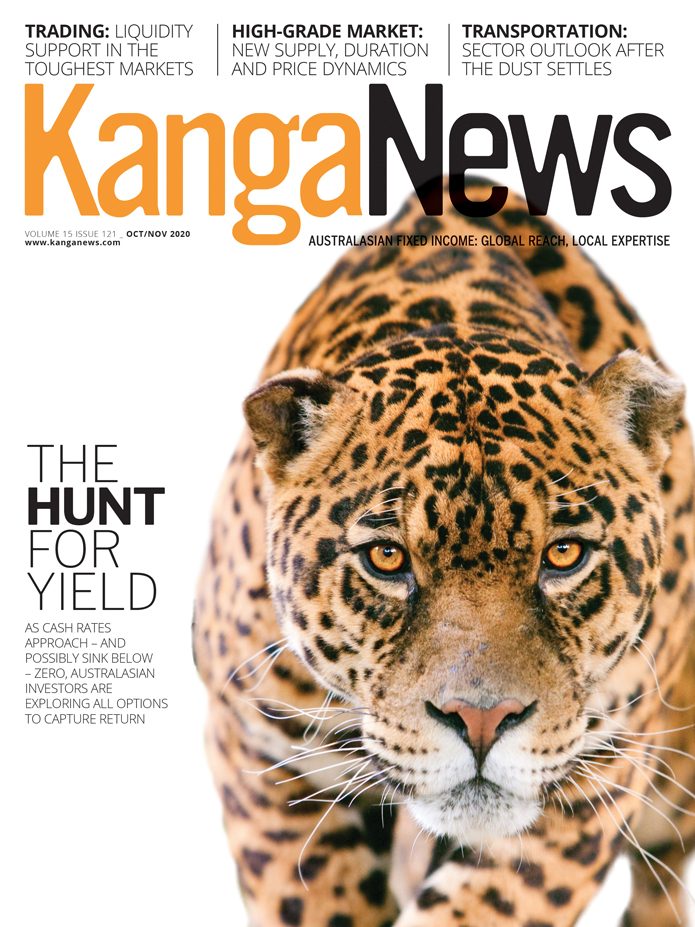Oct/Nov 2020
In this issue

In this issue
- Australian specialist investors on credit opportunities
- Transport and freight infrastructure providers on the challenges of 2020
- Trading insights from the toughest of market conditions
- Exclusive coverage of the KangaNews Debt Capital Markets Summit 2020 online agenda
- KangaNews-Moody's Investors Service Corporate Borrowers' Intentions Survey
- ING maintains Australian ambition
- New Zealand investors discuss the new market landscape
- Securitisation rebound in Australia and New Zealand
- New Zealand corporates back in capital markets, including green format
- First take on new responsible-lending proposals
- European insights on EU finding and managing rating pressure
KangaNews issues

